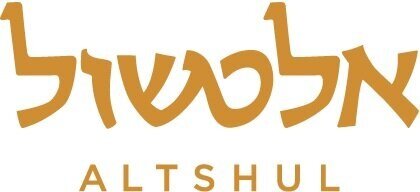Involvement of Non-Jews in Davening
February 2017
Altshul aims to be as inclusive a community as possible. Altshul strives to be meaningful for all, regardless of religious background, familiarity with davening, or newness to the community. We’re proud of the work we do together towards these ends.
We are also a community that is comprised of both Jews and non-Jews. As a community guided by halacha, the role of non-Jews in our community raises a difficult question—how do we balance our core value of inclusion with the halacha surrounding requirements that certain service roles be fulfilled by the halachically Jewish? Until now, Altshul has had a nebulous policy that was inconsistently enforced depending on the Gabbai of the week.
Altshul has two organizing teams that are relevant to this discussion. The first is the Leadership Team that assists with event planning, finances, community engagement, and kids programming. The second is the Gabbai & Ritual team that helps to organize davening each week. As halachic questions arise, it is also the role of the Gabbai & Ritual team to research, debate, and develop guidelines to respond to these questions. We often enlist the help of Rabbi Ethan Tucker of Mechon Hadar for halachic guidance. The policy outlined below comes from the Gabbai & Ritual team, and should you have any questions you can always email gabbai@altshul.org to discuss.
A couple of months ago, the Gabbai & Ritual team was asked to discuss the involvement of non-Jews in Altshul services. First, we reiterated our definition that a Jew is (a) a person whose biological mother is Jewish or (b) a person who has undergone a formal conversion process under the auspices of a rabbi, regardless of the rabbi’s denominational affiliation. (At Altshul we never ask if someone is Jewish, but if someone inquires into our definition we will refer to the above.) Our next step was to listen to a recording from Rabbi Ethan Tucker on the subject that we actually requested that he produce. We encourage you to listen to the recording (only 20 minutes), but here is a quick summary:
Rabbi Ethan quotes a number of Biblical verses that discuss the role of “other nations” in Temple life, but the verse he focuses on most is Leviticus 20:25: “It is forbidden for Gentiles to bring sacrifices to the Temple that have some kind of blemish.” This verse is significant, of course, because it assumes that non-Jews could bring sacrifices to the Temple in the first place. In the Mishnah’s discussion of this verse, the schools of Rabbi Yishmael and Rabbi Akiva disagree. Rabbi Yishmael holds the more expansive view, suggesting that non-Jews can be almost full participatory members of the community. Rabbi Akiva’s opinion, emphasized by the Mishnah, is that non-Jews should not participate in mandatory elements of service (the example it gives is the donation of the mandatory half shekel for Temple operations), but that non-Jews can participate in voluntary and non-essential elements of Temple life.
Rabbi Ethan does not go much further in applying this Mishnaic discussion to come to a specific answer to the question at hand, but he suggests that davening communities use the framework of Rabbi Akiva’s opinion to determine the role of non-Jews in davening. That is, he suggests that davening communities distinguish between mandatory or core elements of davening where duties should be performed by Jews and non-essential non-core elements of davening where duties can be performed by non-Jews. This resonated well with the Gabbai & Ritual team, since we had all entered the conversation with a recognition that our community is comprised of both Jews and non-Jews alike, and that we would ideally like to define spaces and moments for both Jews and non-Jews to participate.
Contemplating the framework presented by Rabbi Ethan, the Gabbai & Ritual team developed a list of roles that we believe non-Jews should be allowed to take on. Firstly, we welcome non-Jews to participate in all logistical roles. This includes (but is not limited to):
– Set-up
– Clean-up
– Greeting
– Leading Kindershul
– Sponsoring Kiddush
– Altshul membership
In addition, service-related functions in which non-Jews are invited to participate are:
– Lead the prayer for the United States
– Open the ark when the Torah is not being removed
– Deliver a drash
– Hold the Torah during Simchat Torah hakafot
However, non-Jews cannot fulfill roles such as reading Torah, leading services, or being called to the Torah for aliyot.
Regarding ark opening when the Torah is being removed: although the role is not halachically required, we feel it’s a role that is absolutely core to davening. The Torah service, the ritual centerpiece of Shabbat morning services, could not take place without that ark opening and Torah removal. We feel this is even more true at Altshul where the ark openings and closings that book-end the Torah service tend to be participatory climaxes of our davening.
Importantly, the Altshul Leadership Team and Gabbai & Ritual team look forward to helping any individual or family plan a lifecycle event at Altshul. While there are halachic restrictions on service participation for non-Jews, we are a single community that celebrates and mourns together regardless of religious background or affiliation. We have partnered on some complicated situations in the past, and commit to give every situation the sensitivity and creativity that it deserves.
If you have any questions about this policy, please email gabbai@altshul.org and we’d be happy to discuss further.
Developed by the Gabbai & Ritual team: Rachel Geballe, Hillel Gruenberg, Sharon Jacker, Adam Levine, Eytan Kurshan, Amanda Pogany, Adi Segal, and Josh Wertheimer
